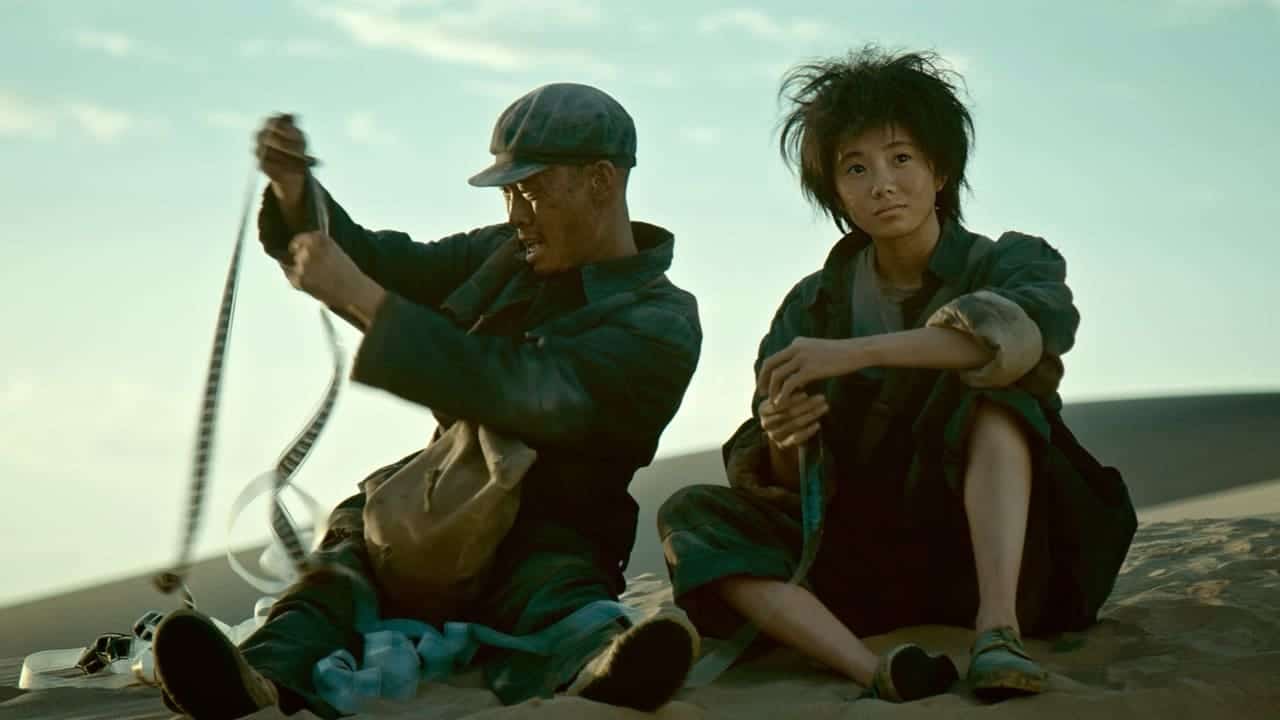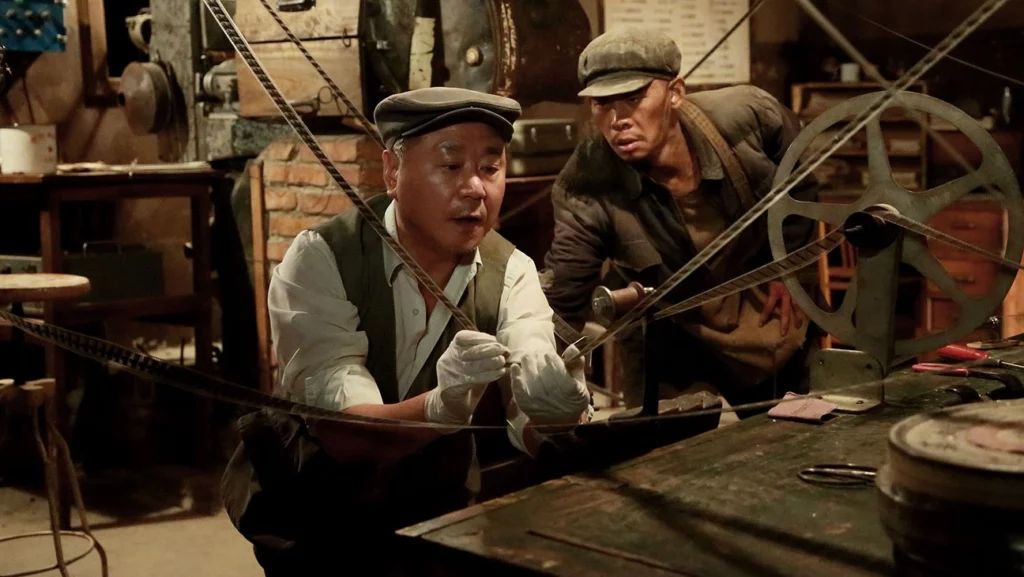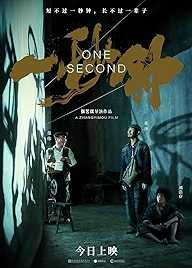If your only exposure to Zhang Yimou is The Great Wall, the Hollywoodised epic starring Matt Damon, which, like its namesake, goes on and on, One Second might come as a bit of a surprise. It’s Zhang back on form, the guy who made Raise the Red Lantern and House of Spinning Daggers, spinning a simple yet never obvious story of a man, a woman and a can of film into a stirring anthem to the power of cinema itself.
Heroic cinema! Heroic cinemagoers! In the eye-catching opening moments we meet a man walking over desert sands to see a film screening at a remote cinema. It’s 1965 and Chairman Mao’s Cultural Revolution is in full swing. This fugitive, we glean from the odd hint dropped, might have escaped from one of Mao’s re-education centres. Or he may be a common thief. Either way he’s a “bad element”.
Starving and thirsty, he gets to town but doesn’t get to see his movie. He’s too late and now will have to walk to the next town to catch the show. That’s if there’s any movie left by the time the motorcycle courier gets to the next town. As the fugitive looks on aghast, he spots a lone thief lifting one of the precious cans of film and haring off into the night with it. The fugitive gives chase.
And that’s the movie – the thief, who turns out to be a pretty young big-eyed orphan called Liu (Liu Haocun), runs with the film, and the fugitive (Zhang Yi) gives chase. It’s also a road movie of sorts, with Zhang Yimou throwing the two together into close proximity, before separating them again, repeatedly.
The faint outline of Frank Capra’s It Happened One Night starts to become discernible – two people at odds who will, surely?, fall in love – which Zhang lets take on an almost solid form before he introduces other amorous possibilities.
A projectionist at the remote town, held in high regard and known simply as Mr Movie (Fan Wei), the orphan’s little brother, the cinema building where the town gathers to watch in rapt amazement as the films play, the reels of holy celluloid film, all are offered up by Zhang as possible other focuses for emotional attachment. All are bathed in a romantic glow.
The disappearance of film as an experience and film as a thing itself recurs as a theme, until Zhang boils it down to a syrup for us – two frames of a newsreel containing the image of the fugitive’s daughter and a dash across the desert, which might now more metaphorically be seen to comprise the sands of time.
Zhang Yi (the fugitive) and Liu Haocun (the orphan) play emblematic characters and don’t over-complicate matters by making them layered, nuanced, or anything more than they need be. He’s a bit of a badass with a soft interior; she’s a tough street kid who might be similar.
The big picture is the big picture in this film and visuals do much of the emotional heavy lifting. Like a lot of Zhang Yimou movies, it’s a screengrabbers delight – those shots of the desert, hard lit from the side; the scenes where the villagers wash dirt from a film print that’s been dragged through the dirt; the moment where the lights go down and we realise there are people in the cinema watching the movie both in front of, beside and behind the screen, all entranced.
A love letter from a director nearing 70 to the craft he’s spent most of his life on and which, in all its big-production glory, is now all but gone, it is an elegaic film made with sensitivity and a poet’s soul and yet the remarkable thing is that Zhang takes it all at the speed of a screwball comedy. For all the “farewell to all that” aspect, there’s nothing po-faced going on here.
One Second – Watch it/buy it at Amazon
I am an Amazon affiliate
© Steve Morrissey 2022


